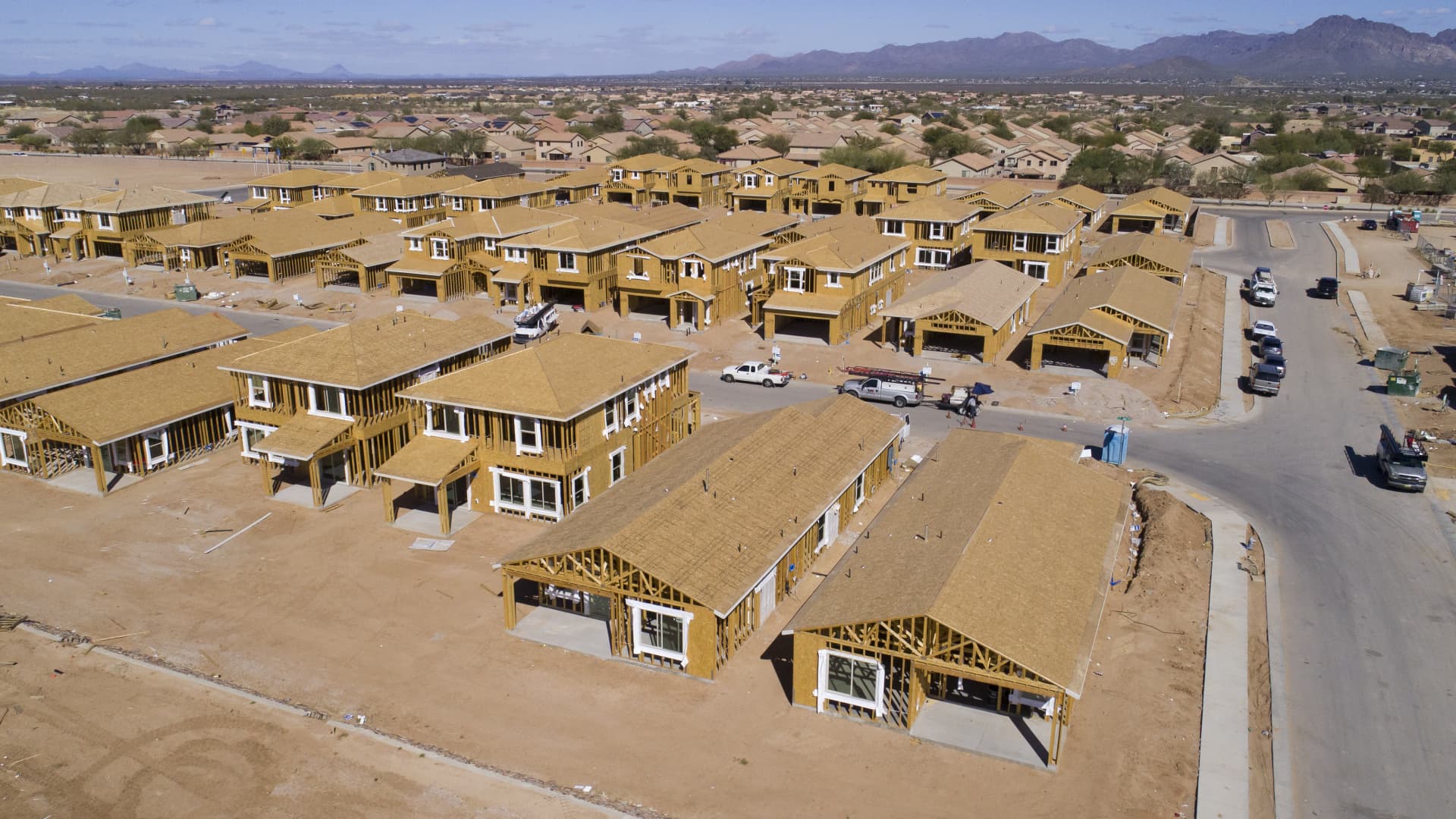Builder sentiment in the single-family housing market posted an unexpected gain in January, rising for the first time in 12 straight months. Economists had predicted a slight decline.
Sentiment rose 4 points to 35 on the National Association of Home Builders/Wells Fargo Housing Market Index. Anything below 50 is still considered negative sentiment. The metric stood at 83 in January 2022.
“It appears the low point for builder sentiment in this cycle was registered in December, even as many builders continue to use a variety of incentives, including price reductions, to bolster sales,” said Jerry Konter, NAHB chairman and a homebuilder from Savannah, Georgia. “The rise in builder sentiment also means that cycle lows for permits and starts are likely near, and a rebound for home building could be underway later in 2023.”
All three of the index’s components posted gains in January: current sales conditions rose 4 points to 40, sales expectations in the next six months increased 2 points to 37, and buyer traffic rose 3 points to 23.
Both builders and consumers are likely responding to the recent drop in mortgage rates. The average contract interest rate on the 30-year fixed mortgage last peaked at 7.37% at the end of October, according to Mortgage News Daily. It then fell throughout December and stood at 6.17% as of Tuesday.
“While NAHB is forecasting a decline for single-family starts this year compared to 2022, it appears a turning point for housing lies ahead,” said Robert Dietz, NAHB’s chief economist. “In the coming quarters, single-family home building will rise off of cycle lows as mortgage rates are expected to trend lower and boost housing affordability.”
Dietz noted the nation still has a structural housing deficit of 1.5 million units and said improved affordability should increase demand.
A measure of mortgage applications to purchase a home did rise sharply last week, according to the Mortgage Bankers Association. Unfortunately, the number of new listings on the market is down from a year ago.
